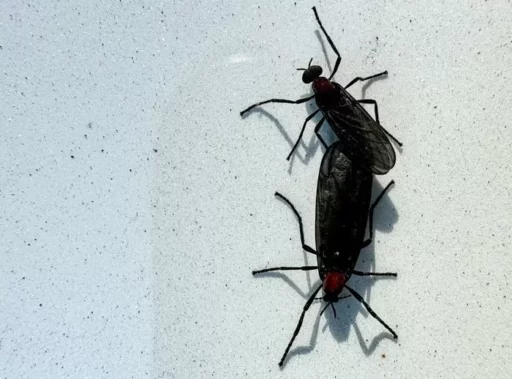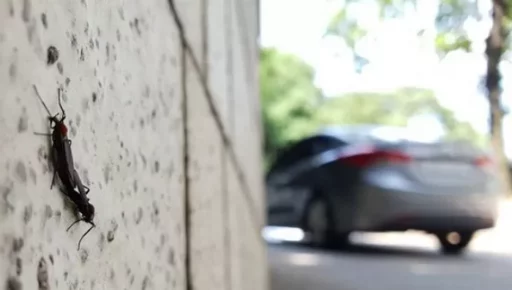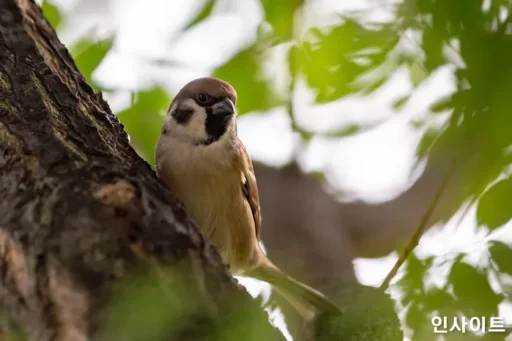The Uncomfortable Truth About Love Bugs
Across the country, primarily in the Seoul metropolitan area, the large outbreak of the insect known as "love bugs" has increasingly inconvenienced citizens.
In particular, as it has become known that this insect has almost no natural predators, interest in effective countermeasures has also grown.
Though love bugs, or "Love Bug" in English, often seen in copulation, have acquired their name, a unique survival strategy occupies a distinct position in the ecosystem.
Unique Survival Strategy in the Ecosystem

Love bugs, scientifically known as 'Plecia nearctica', are referred to as the red-eyed fly in Korea.
These insects primarily emerge in large numbers between May and June and exhibit the peculiar behavior of flying while connected during mating.
Recently, an online community post titled "Let's Learn About Love Bug Predators!" captured attention, amplifying curiosity about the ecology of this insect.
Secrets of Love Bug Survival
According to experts, adult love bugs are rare insects with nearly no special predators.
Typically, predators such as birds, frogs, and toads that primarily feed on insects tend not to eat love bugs. The main reason for this phenomenon is said to be the acidic fluid present in love bugs.

Carol Wyatt Evans, a researcher at the University of Florida's International School of Environmental Studies' Sarasota County Campus, explained in a 2020 op-ed, "Love bugs can escape the threat of predators due to their acidic taste."
This acidic fluid acts as a natural defense mechanism by providing an unpleasant taste to predators.
The non-profit environmental organization, the Environmental Literacy Council, also analyzed that "love bugs have a strong acidic taste and hard exoskeleton, which dissuades amphibians like frogs from eating them."
Conversely, the government recently reported that monitoring confirmed magpies, pigeons, sparrows, and spiders preying on love bugs. However, it explained that there are limits to controlling their population as natural enemies due to the time taken to recognize them as prey and the mass emergence of love bugs.

Role in the Ecosystem and Management Challenges
Although love bugs cause inconveniences for people, they play an essential role in the ecosystem.
They participate in the decomposition of plant byproducts and contribute to improving soil quality by breaking down organic matter during their larval stage. For this reason, love bugs are classified as "beneficial insects."
Due to their beneficial role in the ecosystem, the use of pesticides against love bugs is limited.
A Ministry of Environment official warned, "Love bugs are important insects that function as decomposers in the ecosystem, and indiscriminate pesticide use could disrupt ecological balance."
As a result, large-scale disinfection efforts have been challenging, leading to the reality that the realistic response has become to "endure" the period of mass emergence of love bugs.

Recently, in areas like Gyeyang Mountain in Incheon and Eunpyeong District in Seoul, the mass occurrence of love bugs has led to a surge in resident complaints, prompting local governments to grapple with countermeasures.
Fortunately, large outbreaks of love bugs are temporary phenomena.
Experts state that love bugs appear around the onset of the monsoon season and tend to see a rapid decrease in population after about two weeks. Therefore, it is expected that the current inconvenience will be alleviated by mid-month.
Personal Countermeasures
There are also personal countermeasures to minimize inconvenience from love bugs.
Avoiding bright-colored clothing and refraining from using strong-scented cosmetics or perfumes can help, as love bugs are attracted to bright colors and strong smells.

Additionally, it is advisable to shake off clothes and shower after outdoor activities. Installing insect screens on windows and quickly opening and closing doors can prevent love bugs from entering the home.
Because love bugs have weak wings and dislike water, if they are stuck on windows, spraying water can help easily remove them.
Love bugs do not sting or possess venom, but when driving, if love bugs collide in large numbers, they can obstruct visibility. Therefore, it is recommended to keep windshield washer fluid topped up and wash the car frequently when needed.
Image Sources: The insect known as 'love bug' / News1, source for the understanding of the article / Image=Insight, real-time situation at Gyeyang Mountain shared by a netizen on the 28th of last month / Instagram 'kimlark34', source for the understanding of the article / News1.


